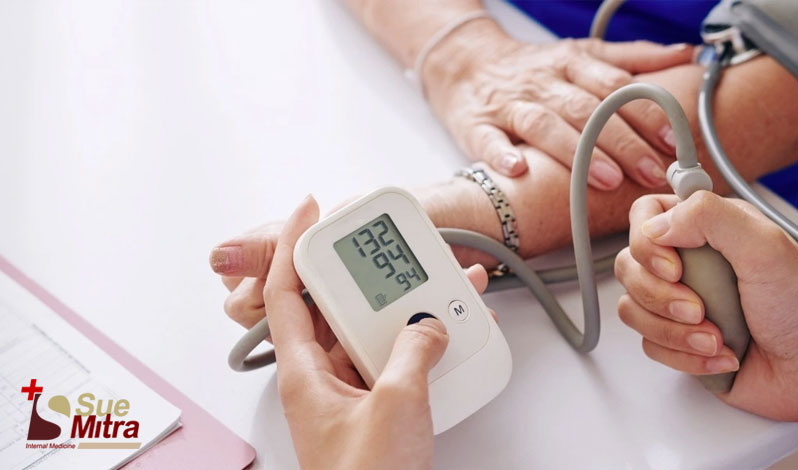
22, Oct 2024
Overview:
High blood pressure, or hypertension, is a prevalent health issue that can lead to serious complications, including heart disease and stroke. Managing blood pressure effectively is crucial for maintaining overall heart health and reducing the risk of these complications. Here are some strategies and tips to help individuals achieve better control over their blood pressure.
1. Understand Your Numbers
The first step in managing high blood pressure is to know your numbers. Blood pressure is measured in millimeters of mercury (mmHg) and is recorded with two numbers: systolic (the pressure during heartbeats) and diastolic (the pressure between beats). Regular monitoring, whether at home or during doctor visits, helps identify patterns and determine if lifestyle changes or medications are necessary.
2. Adopt a Heart-Healthy Diet
This diet emphasizes:
· Fruits and Vegetables: Aim for at least five servings a day, which provide essential vitamins and minerals.
· Lean Proteins: Choose sources such as fish, poultry, beans, and nuts while limiting red meat and processed meats.
· Low Sodium: Reducing salt intake to less than 2,300 mg per day (or 1,500 mg for greater effect) can significantly lower blood pressure. Opt for herbs and spices to flavor foods instead of salt.
3. Maintain a Healthy Weight
The risk of high blood pressure can be increased by being overweight. Even modest weight loss—5 to 10% of body weight—can make a significant difference in blood pressure readings. Combine a healthy diet with regular physical activity for effective weight management.
4. Stay Active
Regular physical activity strengthens the heart and improves blood circulation, which can help lower blood pressure. Activities like walking, jogging, cycling, and swimming are excellent choices. Additionally, incorporating strength training exercises at least two days a week can further enhance cardiovascular health.
5. Limit Alcohol and Avoid Tobacco
Excessive alcohol consumption can raise blood pressure. It's recommended to limit intake to moderate levels—up to one drink per day for women and two for men. Smoking is another major risk factor for hypertension and heart disease.
6. Manage Stress
Chronic stress can contribute to high blood pressure. Manage stress effectively by meditation, deep breathing exercises, and yoga. Additionally, finding hobbies or activities that bring joy and relaxation can be beneficial.
7. Follow Your Doctor's Recommendations
If lifestyle changes alone are insufficient to manage blood pressure, medication may be necessary. It’s important to follow your healthcare provider’s recommendations and discuss any concerns about your treatment plan.
Conclusion
Managing high blood pressure requires a comprehensive approach that includes understanding your health, adopting a nutritious diet, maintaining a healthy lifestyle, and seeking medical advice when necessary. By taking proactive steps, individuals can significantly improve their heart health and overall well-being.
Dr. Sue Mitra and her staff strive to offer their patients the best care, advice and services available in the medical field with the goal to keep patient healthy & happy.

Dr. Sue Mitra is board certified in international medicine. She is seen here with a Cologuard, which is a noninvasive colon cancer screening test. (Photo by: Tim Shortt/Florida Today)